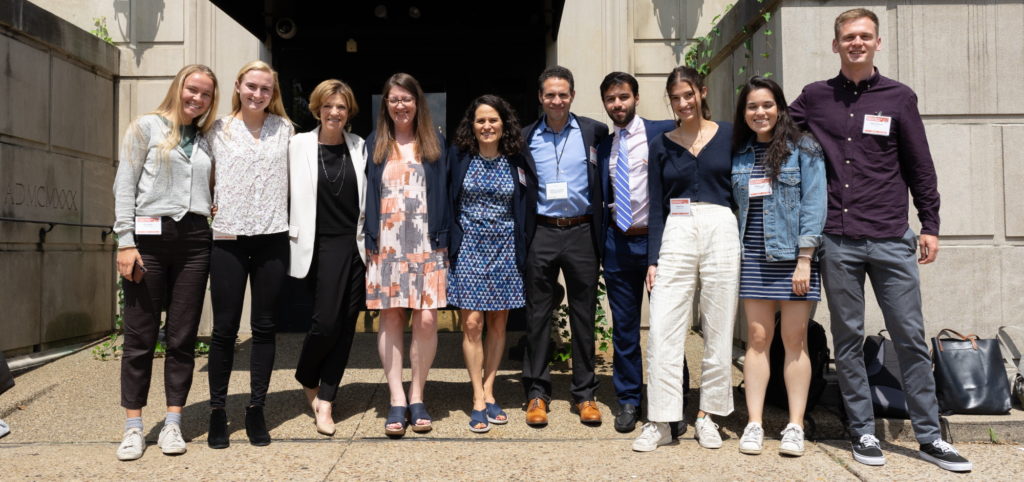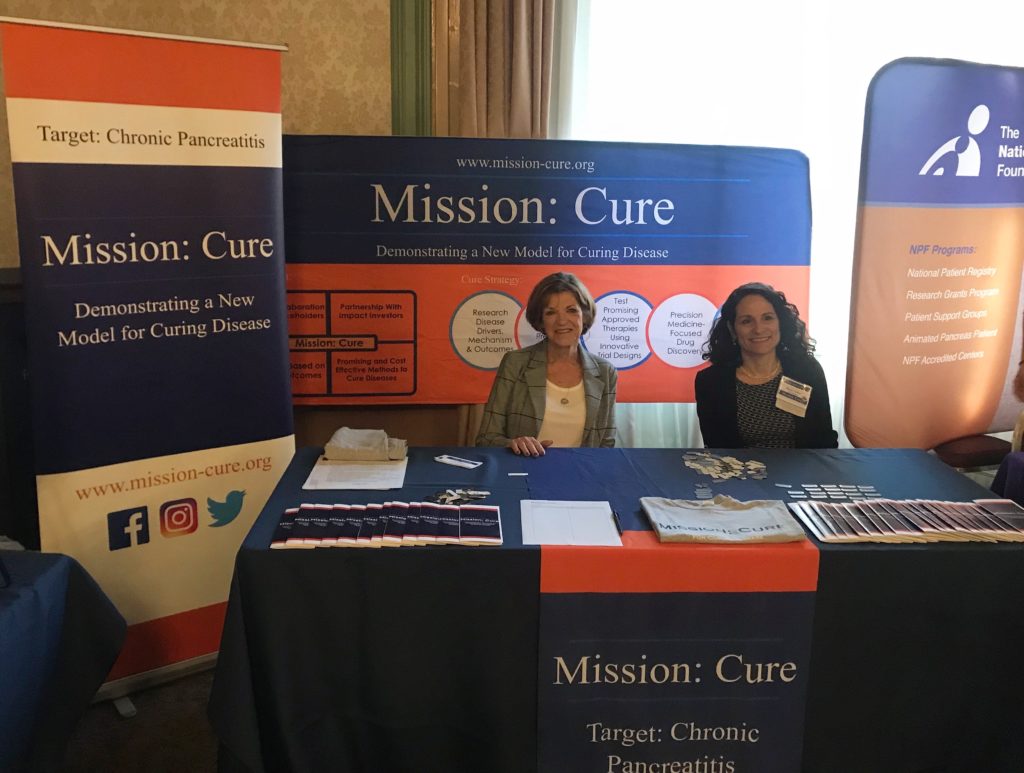PancreasFest 2019 unveiled promising scientific discoveries and exciting collaboration opportunities, and Mission: Cure was there!

Mission: Cure’s Team at PancreasFest 2019. Big thanks to our amazing interns from Brown University and Amy Jensen who shared her story of living undiagnosed with chronic pancreatitis.
Yes, PancreasFest is the name of a scientific conference held annually in Pittsburgh, PA in July where leading physicians, researchers and patient advocates share new discoveries, discuss results of the latest research and identify best practices for diagnosing and treating pancreatitis, pancreatic cancer and other pancreatic diseases. Two of Mission: Cure’s projects were featured before this highly collaborative and committed group.
Table of Contents
Targeting the CFTR Gene
At a meeting of key scientific partners, Linda Martin and Megan Golden presented Mission: Cure’s strategy to develop treatments for pancreatitis patients with mutations in the CFTR gene. Mutations in this gene – the gene that also causes cystic fibrosis – are now thought to be present in as many as 50% of chronic pancreatitis patients. The CFTR gene regulates how fluid flows in and out of cells. Cystic fibrosis patients have fluid build-up in their lungs and pancreas; people with less severe CFTR mutations or with less severe CFTR mutations and a mutation in another gene such as the Calcium Sensing Receptor “CASR” or the Serine Peptidase Inhibitor, Kazal type 1 “SPINK,” can have pancreatitis but not cystic fibrosis.
The good news about this discovery is that, through the work of the Cystic Fibrosis Foundation and its collaborators, there are drugs that can fix most of the problems that CFTR mutations cause. Pancreatitis experts believe these CFTR-correcting drugs may also work for some people with pancreatitis. Mission: Cure is helping plan clinical trials to test whether successful cystic fibrosis drugs will be effective in treating recurrent acute and chronic pancreatitis.
Harnessing Big Data to Identify Approved Drugs to Repurpose for Pancreatitis
Finlay MacLean, a biomedical engineer from Elsevier, an international information analytics company, traveled from London to present on another Mission: Cure collaboration – a datathon where data scientists identified over 300 already-approved drugs that have potential as treatments for chronic pancreatitis. The datathon used big data mining and artificial intelligence to identify drugs to add to Mission: Cure’s growing list of approved drugs that have potential to treat pancreatitis. For those that are safest and most promising, we intend to partner with researchers and start small clinical trials as early as next year. Stay tuned for updates on these exciting proof-of-concept trials.
Logan’s Story: Pediatric Pancreatitis
As we forge ahead to advance new therapies and a cure for chronic pancreatitis, we hold six-year-old Logan Williams and his family in our hearts and minds. In the enclosed video the Williams family shares its life-changing journey as they deal with chronic pancreatitis and learn to cope with the disease now prevalent in their lives.
We extend our gratitude to you – our community of patients and families, physicians and researchers, leaders from government and the business community – who believe that, with focus and funding, those suffering from debilitating and untreatable diseases should have hope for a cure. We wish you a wonderful end of summer.
From all of us at Mission: Cure – Thank you!
P.S. We welcome your outreach! Please feel free to contact us via email at: Linda Martin, lmartin@mission-cure.org and Megan Golden, mgolden@mission-cure.org.

